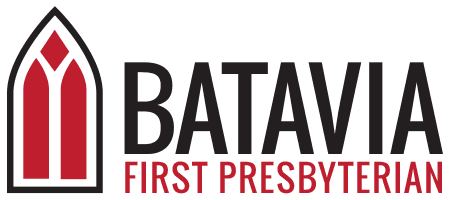Weekly Bible Devotional
“Come, Follow Me: Transformation”
February 6, 2022
Scripture: John 21:1-14
After these things Jesus showed himself again to the disciples by the Sea of Tiberias; and he showed himself in this way. 2 Gathered there together were Simon Peter, Thomas called the Twin, Nathanael of Cana in Galilee, the sons of Zebedee, and two others of his disciples. 3 Simon Peter said to them, “I am going fishing.” They said to him, “We will go with you.” They went out and got into the boat, but that night they caught nothing.
4 Just after daybreak, Jesus stood on the beach; but the disciples did not know that it was Jesus. 5 Jesus said to them, “Children, you have no fish, have you?” They answered him, “No.” 6 He said to them, “Cast the net to the right side of the boat, and you will find some.” So they cast it, and now they were not able to haul it in because there were so many fish. 7 That disciple whom Jesus loved said to Peter, “It is the Lord!” When Simon Peter heard that it was the Lord, he put on some clothes, for he was naked, and jumped into the sea. 8 But the other disciples came in the boat, dragging the net full of fish, for they were not far from the land, only about a hundred yards[ off.
9 When they had gone ashore, they saw a charcoal fire there, with fish on it, and bread. 10 Jesus said to them, “Bring some of the fish that you have just caught.” 11 So Simon Peter went aboard and hauled the net ashore, full of large fish, a hundred fifty-three of them; and though there were so many, the net was not torn. 12 Jesus said to them, “Come and have breakfast.” Now none of the disciples dared to ask him, “Who are you?” because they knew it was the Lord. 13 Jesus came and took the bread and gave it to them, and did the same with the fish. 14 This was now the third time that Jesus appeared to the disciples after he was raised from the dead.
Notes on the Text:
This is a post-resurrection vision of Jesus for the disciples on the Lake of the Sea of Galilee. It is the same place where Peter’s discipleship journey began but this time around Peter was ready to go deeper. Before his failure and denial of Jesus, one might say that Peter was self-sufficient. Things were under control for him. He trusted in Jesus, but he also trusted in his own will power and ego strength. His tenacity, boldness, and impulsivity made him a distinguished disciple. We all can relate to such experience when we may feel like the star student, the perfect employee or employer, the great community member, or the “always-right” believer. Those are the times when we ignore or forget about the divine power and love within our hearts or that whatever we do, say, and think to others we are doing it to ourselves and to Christ himself. Failure for Peter was the only way for him to become humble and open again. This was what prepared him to receive the gift of seeing Jesus again after the resurrection.
There are so many symbols in this story which help connect the dots for us for the whole story of Jesus: The lake (a symbol of danger), the boat (a symbol of the early church), the fishing (a symbol of fishing for people and also a symbol of Jesus himself), the boldness of Peter in swimming back to Jesus, the cooked meal (the Lord’s Supper), and the abundance of the catch. All were important parts of the story, but this week I would like us to focus on a detail in the story that helped Peter really connect with Jesus: The charcoal fire. One of the strongest triggers of memory is smell. We know from our own experience with campfires how the smell is something you never forget. This was the second time Peter was encountering Jesus around a fire. The first time was in the courtyard of the high priest where Jesus was arrested. One can only imagine the pain and disappointment that were triggered by the smell. The only thing that could have helped Peter out of that mess was a meal where his sense of being nurtured and loved were involved. Words and thoughts were not enough. An experience of the power of God was needed. The simple meal of fish and bread were reminders of the abundance of Christ’s love which covered a multitude of sins. This was a reminder of the Last Supper which they had and the many nurturing meals they had together. Through that meal and the conversation with Jesus, Peter was transformed from a self-sufficient man to a disciple who allowed Jesus to heal him.
For Reflection:
This week, we are focusing on the invitation of Jesus to follow him and to be transformed. Transformation is difficult because it is truly about the work of the Spirit in us. We can’t make it happen. We can’t manufacture transformation. It is a gift of the Spirit. Our work is to become more receptive and aware. Going on a retreat, worshipping together, sharing in communion, serving those in need, examining our assumptions and fears, blessing our failures, and taking time each day to pray are some of the intentional practices of discipleship that help us to stay open. These practices are not meant to make us feel better than others or above others. They are about connecting to our essence.
One of the great gifts of faith is knowing that God is with us all the time in loving and gentle ways and in all the seasons of our lives. The challenge is to be aware of God’s presence on a regular basis. We live in the illusion that we are separate from God and from others. We often even feel disconnected from ourselves, our true selves. The main goal of faith is not to make each of us a moral person or a nicer person, even though these will be the results of faith. Faith is about becoming aware of our connection to God and to others in the world by living with an abiding sense of connection to the Spirit within us.
In her book, Prayer, Joyce Rupp writes, “Whenever I lead retreats one of the first things I ask participants to do is ‘pray to be open.’ If there is openness, wondrous transformation can take place. If the mind or heart is closed, little can happen. If our spirit remains blocked, we end up holding on to our weaknesses and self-absorptions, misjudging the goodness of God, refusing to trust, and insisting on having our own way. Divine love waits for us to let go of our hesitancies and resistances so we can freely receive what is being offered. Growth through prayer requires us to release thoughts, feelings, and behaviors that hold us back from discovering our true self. To be open in prayer is to be willing to acknowledge the totality of who we are, to divest of what no longer adequately serves our life and our God-relationship.”
Loosen My Grip Prayer by Ted Loder:
O God, it is hard for me to let go,
most times,
and the squeeze I exert,
garbles me and gnarls others.
So, loosen my grip a bit
on the good times,
on the moments of sunlight and star shine and joy,
that the thousand graces they scatter as they pass
may nurture growth in me
rather than turn to brittle memories.
Loosen my grip
on those grudges and grievances
I hold so closely,
that I may risk exposing myself
to the spirit of forgiving and forgiveness
that changes things and resurrects dreams and courage.
Loosen my grip
on my fears
that I may be released a little into humility
and into an acceptance of my humanity.
Loosen my grip
on myself
that I may experience the freedom of a fool
who knows that to believe
is to see kingdoms, find power, sense glory;
to reach out
is to know myself held;
to laugh at myself
is to be in on the joke of your grace;
to attend to each moment
is to hear the faint melody of eternity;
to dare love
is to smell the wild flowers of heaven.
Loosen my grip
on my ways and words,
on my fears and fretfulness
that letting go
into the depths of silence
and my own uncharted longings,
I may find myself held by you
and linked anew to all life
in this wild and wondrous world
you love so much,
so I may take to heart
that you have taken me to heart. Amen.


